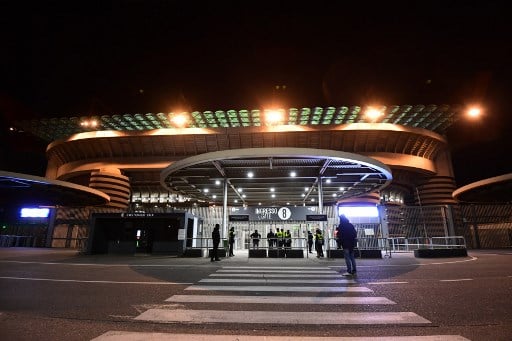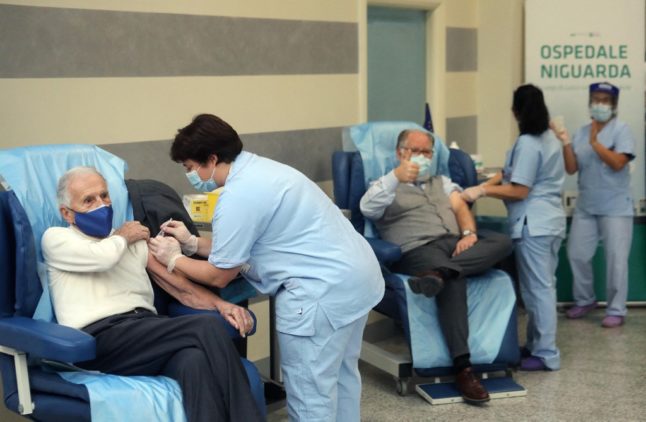Italy ordered on Wednesday that all major sporting events be held behind closed doors until April 3 as the country grapples with the deadly coronavirus outbreak.
The measure was announced as the Italian government stepped up its response to an epidemic that has killed 107 people and infected more than 3,000 others in Italy in the past two weeks.
(These numbers are changing constantly: view the latest figures here.)
In a decree released on Wednesday, the government states that “all sporting events and competitions of all types, whether private or public” can be held “in sports facilities behind closed doors – namely in the open air but without the presence of the public”.
This week's Italian Cup semi-finals – Juventus against AC Milan in Turin and Napoli's clash with Inter Milan at the Stadio San Paolo – have been postponed because of the outbreak.
No new dates for the matches have been announced and the May 13 final is now likely to be postponed for at least a week.
The spread of the virus has played havoc with Serie A, with 10 matches postponed over the last fortnight and a huge row brewing between clubs and the country's top football league over the scheduling of fixtures.
The six games shelved from the round – including the title clash between Juve and Inter – are expected to be moved to the coming weekend, with every other matchday pushed back a week.
Italy's Six Nations rugby union match against Ireland in Dublin, scheduled for Saturday, has already been postponed, and there are now serious doubts about the visit to Rome of England the following weekend.
The Davis Cup tennis qualifier between Italy and South Korea in Cagliari on Friday and Saturday will also have to be held without fans.
Find all The Local's coverage of the coronavirus outbreak in Italy here.



 Please whitelist us to continue reading.
Please whitelist us to continue reading.
Member comments